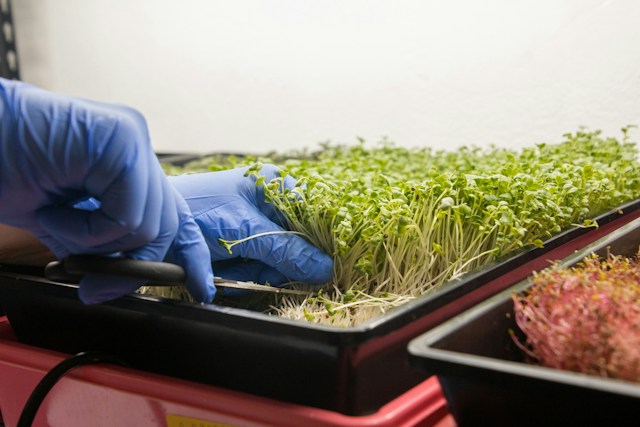
The idea of cultivating a garden might seem like a distant dream in the bustling urban landscape of high-rise living in condominiums like the Lentoria Condo. However, with the growing trend of condo gardens and urban farms, residents are redefining green spaces and bringing the joys of homegrown produce to the sky-high dwellings.
One of the primary challenges of condominium living is the limited space, but innovative residents are transforming balconies, terraces, and communal areas into thriving mini-farms. These condo gardens not only provide a source of fresh, organic produce but also create a sense of community and sustainability.
Balconies, often overlooked for their gardening potential, become micro-farms where residents cultivate herbs, vegetables, and even small fruit trees. Container gardening, using pots and hanging planters, maximizes the use of space while adding a touch of greenery to the concrete surroundings. Vertical gardening, with plants arranged in stacked tiers, is another popular technique, turning walls into lush, edible landscapes.
Communal spaces within condominiums are also witnessing a transformation. Rooftops and shared courtyards are being repurposed into urban farms, where residents collectively nurture a variety of crops. This shared gardening experience fosters a sense of community as neighbors collaborate to cultivate and harvest their crops.
The benefits of condo gardens extend beyond the joy of harvesting one’s produce. Residents enjoy access to fresh, pesticide-free herbs and vegetables, contributing to healthier lifestyles. Additionally, cultivating a garden in a high-rise setting introduces residents to sustainable practices, reducing their ecological footprint and promoting environmental awareness.
ALSO READ: Cooking up Disney Magic: Recipes Inspired by Iconic Films
The condo garden trend aligns with the global movement toward sustainable and locally sourced food. It empowers residents to reconnect with nature, even in the midst of a concrete jungle. From aromatic basil and mint to vibrant tomatoes and peppers, these condo gardens offer a palette of flavors that enhance the culinary experiences of those living in high-rise communities.
Condominium developers are also recognizing the appeal of green living. Many modern condo complexes are incorporating designated gardening spaces into their designs, providing residents with community gardens equipped with irrigation systems, gardening tools, and shared storage spaces. This deliberate inclusion of green spaces contributes to the overall well-being of the community and enhances the market value of the condominiums.
Conclusion
Condo gardens and urban farms are redefining high-rise living, turning concrete spaces into thriving oases of greenery and productivity. As residents embrace the joy of cultivating their food, they not only enhance their culinary experiences but also foster a sense of community and environmental responsibility in the heart of the city. Condo living is no longer just about luxurious amenities; it’s about creating a sustainable and harmonious living environment that nurtures both individuals and the community as a whole.
